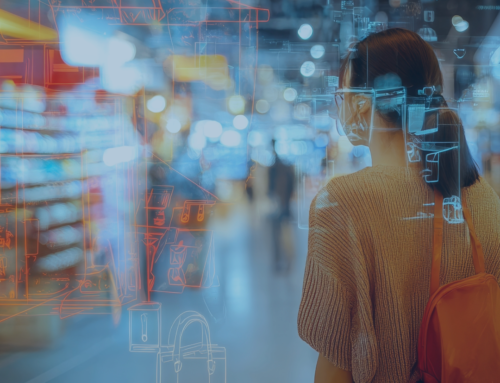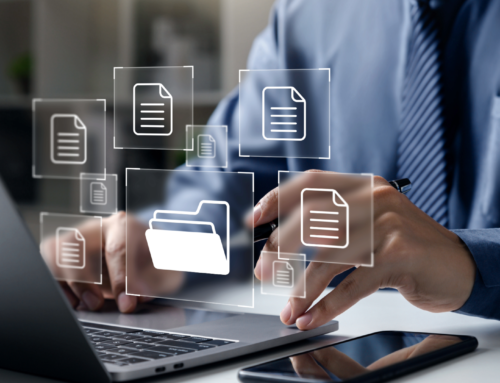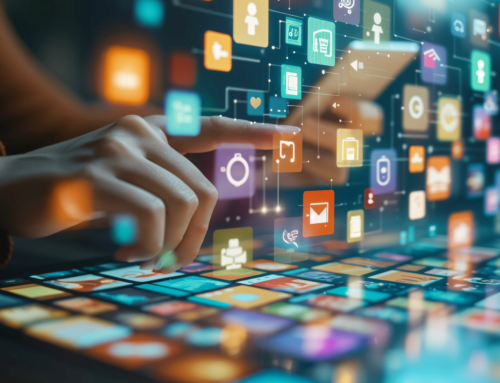Key Focus Areas for B2B Success in 2025
As the B2B landscape evolves, businesses must adapt to stay competitive in a rapidly changing environment. In 2025, emerging technologies, shifting buyer expectations, and innovative growth strategies will define success. Companies that embrace AI integration, prioritize product-led growth, and adapt to generational disruption will thrive in this new era of B2B marketing and sales.
AI Integration
In 2024, AI experimentation sparked widespread innovation, but by 2025, AI will evolve into a core part of business operations, particularly in marketing and sales. The focus will shift from trial-and-error experimentation to a structured, data-driven approach that enhances team productivity and decision-making.
- Predicting Behaviors: AI-powered tools will enable businesses to anticipate customer behaviors by analyzing vast amounts of data from past interactions. Instead of only predicting which email variant will perform better, AI could predict the exact day and time when a customer is most likely to engage based on their full behavioral pattern.
- Automating Workflows: Platforms like Adobe Campaign automate workflows such as email triggers and multi-touch campaigns, but human oversight is still needed to design and optimize these workflows. In 2025, AI will enhance automation of more complex workflows and decision-making processes, such as optimizing customer journeys across multiple touchpoints. AI will analyze data to determine the best sequence of actions to achieve specific goals, such as retention or upselling, without manual input.
- Delivering Personalized Customer Experiences: Current marketing technologies enable personalized content, but personalization is often based on predefined segments and past behaviors. Content updates occur in near-real-time but are not fully dynamic. In 2025, AI will enable greater real-time personalization by constantly analyzing live customer interactions and adapting content or messaging on the fly. This will be powered by generative AI models that create entirely new content variants (e.g., ad copy, email subject lines, images) tailored to individual user preferences and behaviors
Product-led growth (PLG) continues to be a priority, but the focus will shift towards delivering value directly through the product and streamlining the customer journey.
- Customer-Centric Strategies: Companies will look to provide experiences that highlight the inherent value of their products through self-service models, where customers can try, use, and purchase products independently. For example, businesses could offer free trials or freemium models to allow customers to experience the product before making a purchasing decision.
- Self-Service Experiences: The traditional reliance on sales reps for the purchasing process will decrease. Instead, companies will enable customers to make informed decisions independently, using online resources like tutorials, FAQs, or comparison tools directly on product websites or within marketplaces.
- Data-Backed Decision-Making: Companies will use data-driven insights not only to refine their marketing but also to shape the product itself. Analyzing usage data will allow organizations to improve the product’s features and functionality, ultimately making the product more attractive to customers and encouraging viral growth.
Generational Disruption
The rise of Millennial and Gen Z buyers is pushing companies to rethink their traditional B2B marketing and sales strategies. These younger buyers have grown up in a digital-first world and expect personalized, seamless interactions.
- Digital-First Preferences: Younger buyers are accustomed to digital interactions and expect a smooth, omnichannel buying experience. They prefer researching products online, using social media, or leveraging peer reviews to inform their decisions, rather than relying solely on traditional sales reps. Companies will need to create engaging digital content—like webinars, podcasts, or interactive demos—to cater to these preferences.
- Personalized Interactions: While older B2B sales models relied on broad outreach and standardized communication, younger buyers expect highly tailored, relevant messaging. Marketing strategies must leverage data and AI to personalize every step of the buyer’s journey, from initial awareness to post-sale support.
- Challenges to Traditional Sales Models: As younger buyers continue to dominate the market, traditional B2B sales models, where buyers rely heavily on personal sales representatives, will become less effective. To stay relevant, businesses will need to adapt, providing more self-service tools and online resources to guide buyers through their purchasing process. Moreover, organizations will need to integrate sales and marketing efforts more seamlessly to meet the expectations of digital-first buyers.
How M2 Partners Can Help
At M2 Partners, we specialize in helping businesses adapt to these evolving trends. As a trusted Adobe Experience Cloud implementation partner, we empower marketing teams to leverage technology, streamline workflows, and unlock data-driven insights. Whether it’s enhancing AI-powered customer experiences, improving operational efficiency, or aligning sales and marketing strategies, M2 Partners provides the tools and expertise to drive B2B success in 2025 and beyond.






